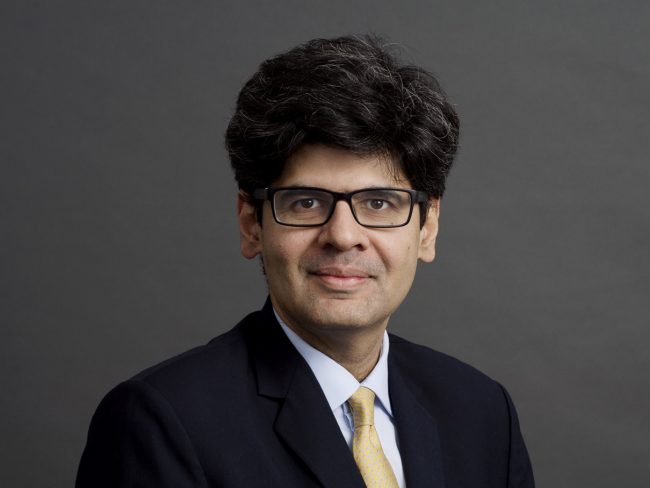A recording of the session and some “top tips” drafted by the participants are now available following a member-hosted panel event – “Managing a mixed civil / common law arbitral panel in international construction arbitration” held last week to coincide with London International Disputes Week 2021.
Andrew Goddard QC chaired a discussion with fellow panel members Veronique Buehrlen QC of Keating Chambers, Paul Lowrie, Partner at Clyde & Co, and Emily Monastiriotis, Partner at Simmons & Simmons. The panel explored the relationship between different legal cultures in the context of parties facing a mixed civil /common law arbitral panel in international construction arbitration. Samar Abbas Kazmi from Atkin Chambers supported the panel Q&A session.
The follow up note (PDF) can be downloaded here, or viewed below.
We have had the pleasure of presenting a member-hosted event for London International Disputes Week 2021. The theme for LIDW21 was “Looking forward: change, challenge and opportunity” and our topic very much fits in with that theme. We were joined by over 200 attendees and hopefully there was something for everyone. The recording is accessible here.
So – what are our thoughts? Let’s approach it on a theme by theme basis as we did on the day.
1. Procedural orders and hearing protocols
Civil Law lawyers appear to be more focused on procedural orders and crafting the precise scope of the dispute, whereas common law arbitrators seem prepared to adopt broader, more flexible, wording. The appropriate outcome very much depends on the case and how complex it is and likely to evolve. Hearing Protocols play a much greater role particularly in the context of virtual hearings. It may however be wise not to be too prescriptive at the outset and to always ensure that the Tribunal maintains a discretion to vary the procedure if needed.
The eternal debate at the outset of an arbitration is often whether a memorial or pleadings approach should be adopted. But the emerging trend for complex construction disputes does seem to be a hybrid procedure – so statements of case accompanied by the principal documents relied upon.
2. Evidence and submissions on the applicable law
An arbitration minefield if ever there was one!
In terms of substantive law strictly there is no “foreign” law in international arbitration, but clearly procedural questions arise when one or more of the Tribunal are not lawyers from the relevant jurisdiction. The traditional approach of expert evidence on “foreign” law has been giving way to submissions, often made by co-counsel from the relevant jurisdiction. Where the Arbitral Panel has the relevant legal background through one of the Arbitrators, it is unlikely to find the filing of expert evidence on the applicable law with which it is familiar useful.
3. Documentary evidence, including privilege
In the Common Law approach oral testimony plays a large and important role in hearings. A particular high is the “cross examination” of witnesses during the hearing. But contrast that with the Civil Law approach where there is more emphasis on documentary evidence. Direct examination by the parties’ representatives is far more limited. We do think we are now witnessing a converging practice: witness statements in writing are submitted in advance of the hearings and mixed Tribunals usually allow counsel for the parties to question witnesses first and only ask questions if points in which the tribunal is interested in are not brought out.
Privilege is a vexed issue as Common and Civil Law approach the concept of privilege of documents from a very different starting point. A “typical” Civil Law regime has very limited disclosure in litigation, and so less need for a developed concept of privilege in the common law sense. There is also the issue of drawing a line between privilege (Common Law) Vs confidentiality (Civil Law). So this is an area often fraught with difficulty.
4. Treatment of oral evidence; Inquisitorial and Adversarial approaches; Sequestering of witnesses
There is a wide held perception that Common Law Arbitrators get excited about the witness statements – this is where the story comes to life. Civil lawyers however mainly concentrate on the documents. It is also fair to say that many arbitrators do not wish (understandably so) to entertain bland and overly long witness statements, with heavy lawyer input. Lengthy witness statements, like lengthy submissions should be avoided where at all possible. The key of course is to identify the real issues in the case at an early stage, but that can be easier said than done.
Civil Law is also often distinguished by the active part played by the arbitrators who search for the facts, examine documents, and order the taking of evidence, whilst the Common Law approach is a more adversarial (or indeed accusatorial) approach. So the parties and their attorneys are primarily responsible for finding and presenting evidence. The arbitrators do not themselves investigate the facts.
Sequestration is not popular with common law lawyers – also frankly in the age of live and overnight transcripts sequestration may be difficult to enforce. That said it remains favoured by civil practitioners.
5. Treatment of expert evidence
From our experience, we consider that the Civil Law tribunals are perhaps more interested in the expert analysis than the factual witness evidence. Civil Law tribunals also more often wish to appoint their own expert. But when faced with a mixed tribunal we see a mixture of the common law and civil law approaches. International arbitrators now expect to hear from experts presented by the parties, either by reading their reports or by hearing their oral testimony, or both. Experts’ presentations may be lengthier and involve Power Point slides. But arbitrators faced with conflicting expert reports can fall back on their ability, found in most sets of arbitration rules, to appoint a tribunal expert to help them to resolve the conflict – although this does not happen very often in practice.
So our top tip: be prepared to be flexible. Think outside the box. Although, given the year we have just had we are sure that will come naturally to many of us now!









